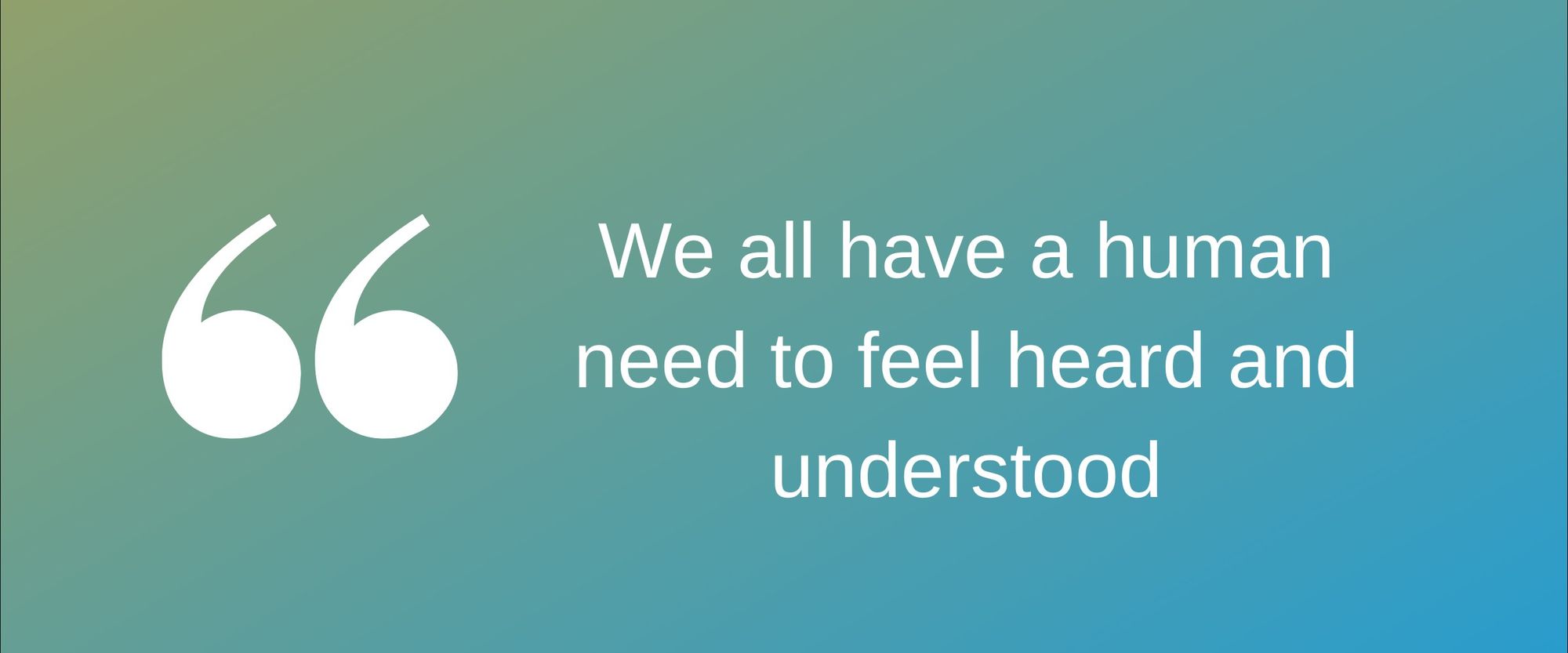Have you ever opened up, only to be met with dismissal? This one’s for you
Imagine you’re having a really tough time, so you decide to turn to a friend. You lay out all your emotions over a cuppa, explaining how totally deflated, frustrated, and overwhelmed you feel, hoping your pal will relate.
You wait for some soothing words of encouragement or an affirmative – “I know exactly how you feel.” Instead, your friend minimises and dismisses your emotions, telling you you’re being oversensitive, insisting that you shouldn’t feel the way you do, or informing you that your problems are too small and insignificant to even worry about.
To add insult to injury, they might even offer up unsolicited advice that seems to suggest you’re the one at fault. Their comments don’t make you feel soothed, heard, and understood, but stifled, frustrated, and silenced. In fact, you feel worse than you did before, and silly for even bringing the problem up.
This is emotional invalidation in action: the process of ignoring, denying or minimising another person’s feelings. It happens when we turn to other people for support and understanding and instead find our feelings aren’t taken seriously. And, in a society that always encourages us to speak up about our mental health, it can be incredibly damaging.
“When someone invalidates your experiences, they dismiss, deny, or reject your thoughts and feelings, and often, this can leave you feeling undervalued, and ignored,” says Rachel Vora, psychotherapist and founder of CYP Wellbeing.

So, why do they do it?
Ever wondered why friends and family react in this way? As hurtful as having your experiences invalidated may be, it may be helpful to know that it’s not always intentional. “People can unintentionally minimise or make light of our emotions for several reasons,” Rachel points out. “It’s often people who are uncomfortable dealing with their own emotions that unintentionally invalidate the emotions of others.
“For example, people who find sitting with their emotions difficult often adopt unhealthy strategies such as distraction, denial, and avoidance.” Rachel says these people are then likely to employ the same strategies with you.
Other times, your friend really does want to make you feel better, and so their immediate reaction is to try and make your problem seem smaller. Have you ever desperately wanted to help a friend in need and scrambled to find the right thing to say, and instead of saying you understand how they’re feeling, you told them not to worry? It’s that.
No one likes to see the people they love in pain and most of us will do anything to make that pain go away. Often, that means dismissing it or trying to make it appear smaller. But, even if your loved ones have your best interests at heart, having your emotions invalidated can really sting. Speaking up isn’t always easy, and so you might feel disappointed, discouraged, and even embarrassed if your feelings aren’t taken seriously. We all have a human need to feel heard and understood, particularly if we’re going through something tough.
“Emotional invalidation can leave you feeling as though your emotions are unimportant,” says Rachel. “In some cases, you can feel confused, start to question your own emotions, and criticise yourself for feeling a certain way.”

What can you do about it?
First things first, remain true to your feelings, advises Rachel. “Use the phrase ‘I feel’ to keep the focus on what you are feeling,” she suggests. “When listening to someone else’s problems, people can often focus on their own feelings, but by using ‘I feel’ statements they are less likely to ignore or undermine your emotions.”
If it’s appropriate, you can explain at the start of the conversation what you need from your friend as well. Do you really just want a listening ear or are you looking for solutions? Do you want someone to relate to your problems or are you crying out for some reassurance? Figure this out before you broach the subject, and let the listener know.
Finally? Know when to stop trying. Not everyone will be equipped to deal with your emotions, Rachel notes. “People can often lack the insight or time to understand others. It can take great courage to hear and see someone else’s emotions and not everyone feels able to do this,” she points out.
With this in mind, it can be helpful to remember their reaction says more about them than it does about you. It doesn’t mean your experiences aren’t valid, just that the person listening to them doesn’t necessarily have the tools to offer you the right support.
Exploring new avenues
The good news? If you need to get something off your chest and feel you aren’t being listened to, you can find that support elsewhere.
“Seeking professional help, such as therapy, can be useful to create a space where you do feel heard and accepted,” says Rachel.
“Likewise, physical activity, such as yoga or gym classes, can be a healthy way of releasing built-up emotions – and expressing your feelings creatively can be very powerful through art, journaling, or music.”
Often, we turn to others to reassure us that our thoughts and feelings are reasonable and acceptable. But you can give yourself that feeling of validation, too, by listening to your emotions. Knowing, simply, that your experiences are valid, and that it’s OK to feel the way you do, can be transformative.


Comments